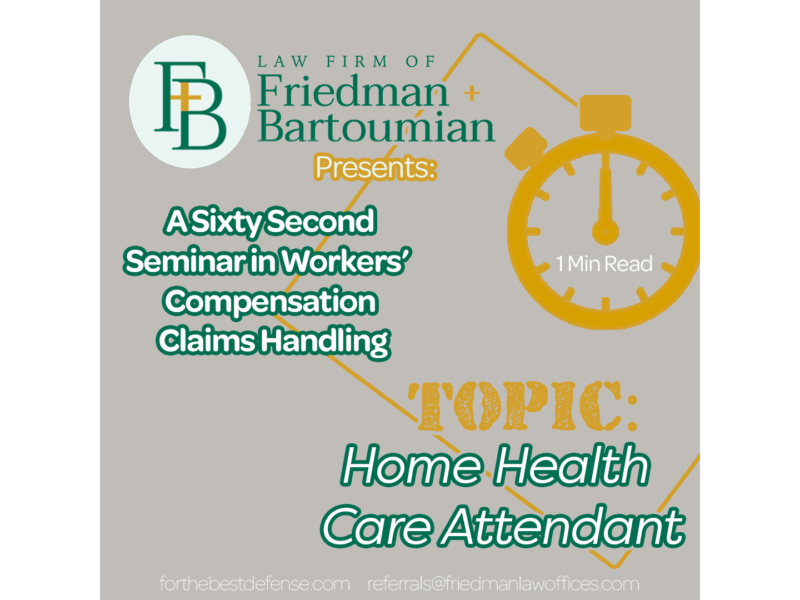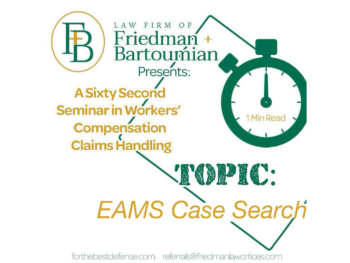When dealing with a catastrophic injury it is not unusual for a claims administrator to hire a home health care attendant to look after the injured worker. Some severely injured workers require constant care and cannot be left alone. For the most part, claims administrators have no objection to engaging a medical management company to provide attendant care. After all, it’s less expensive than admitting the claimant to a care facility. Unfortunately, eyebrows are raised when a spouse insists on serving as the caregiver, especially when they demand to be handsomely compensated. Motives become questionable and possibly attributed to secondary gain rather than compassion.
In one case it became particularly bothersome when a spouse insisted on being paid $30 per hour to take out the trash because a broken leg prevented her husband from doing that chore. Furthermore, she claimed it took an incredible 40 minutes each day to empty the garbage. In another case even though the husband had only suffered a shoulder injury the spouse insisted on payment for 24 hours of daily care because she was “on call” and continuously available in the event her husband needed assistance. These are the type of care-related issues that vex claims administrators.
Undoubtedly, every claims office has handled cases where a spouse provides home health care, whether the services are voluntarily authorized by the administrator or awarded by a judge. With that said, we must ask every administrator, “Is your company providing the spouse with a federal “1099-Misc” tax form at the end of each calendar year?” Payments to the spouse for attendant care services are taxable and should be listed in Box 3 (non-employee compensation) of the 1099-Misc tax form. By comparison, payment to a private medical management company would certainly generate a 1099-Misc form at the end of the year. There is no significant tax difference in paying a private company versus paying the injured worker’s spouse for providing the same service.
On the other hand, any payment an administrator issues directly to the injured worker for reimbursement of caregiver services does not require the administrator to issue a 1099-Misc form. In this situation it would be up to the injured worker to issue the tax form to the spouse. Generally, claims administrators shy away from paying the spouse directly for fear of creating an employment relationship; however, at times a WCJ may order the administrator to pay the spouse directly. In such situations the administrator should confirm in writing that the spouse is an independent contractor and that the claims administrator does not have the right to direct or control the spouse’s performance; nor when the spouse is to perform the work; nor do they provide the workplace; nor do they set the caregiver’s work hours. In such situations a 1099-Misc tax form should be issued to avoid a future run-in with the IRS.
For additional information, please feel free to reach out to Friedman + Bartoumian!



 DNA Evidence in Work Comp: A Sixty-Second Seminar in Workers’ Compensation Claims Handling
DNA Evidence in Work Comp: A Sixty-Second Seminar in Workers’ Compensation Claims Handling
Leave a Reply